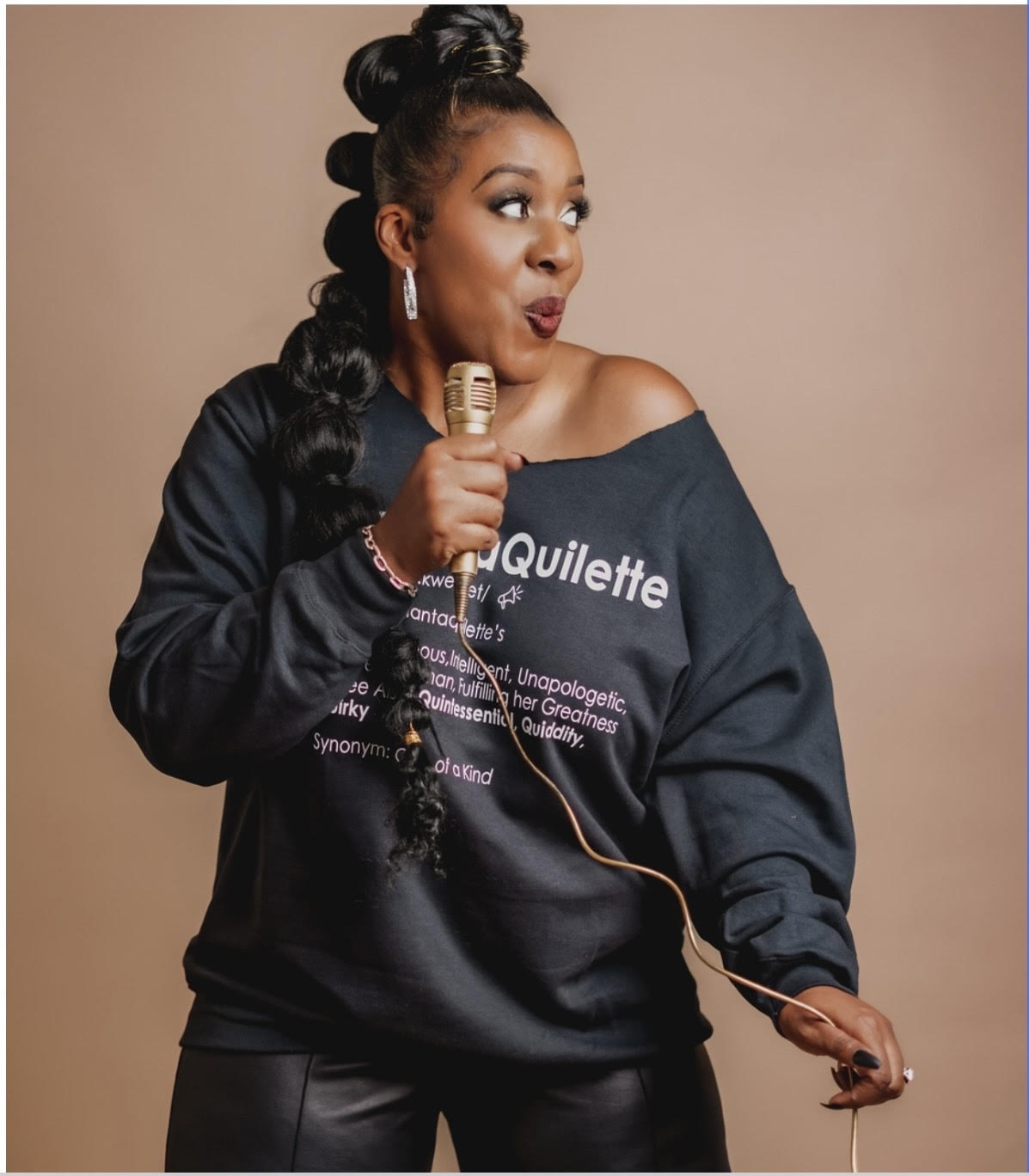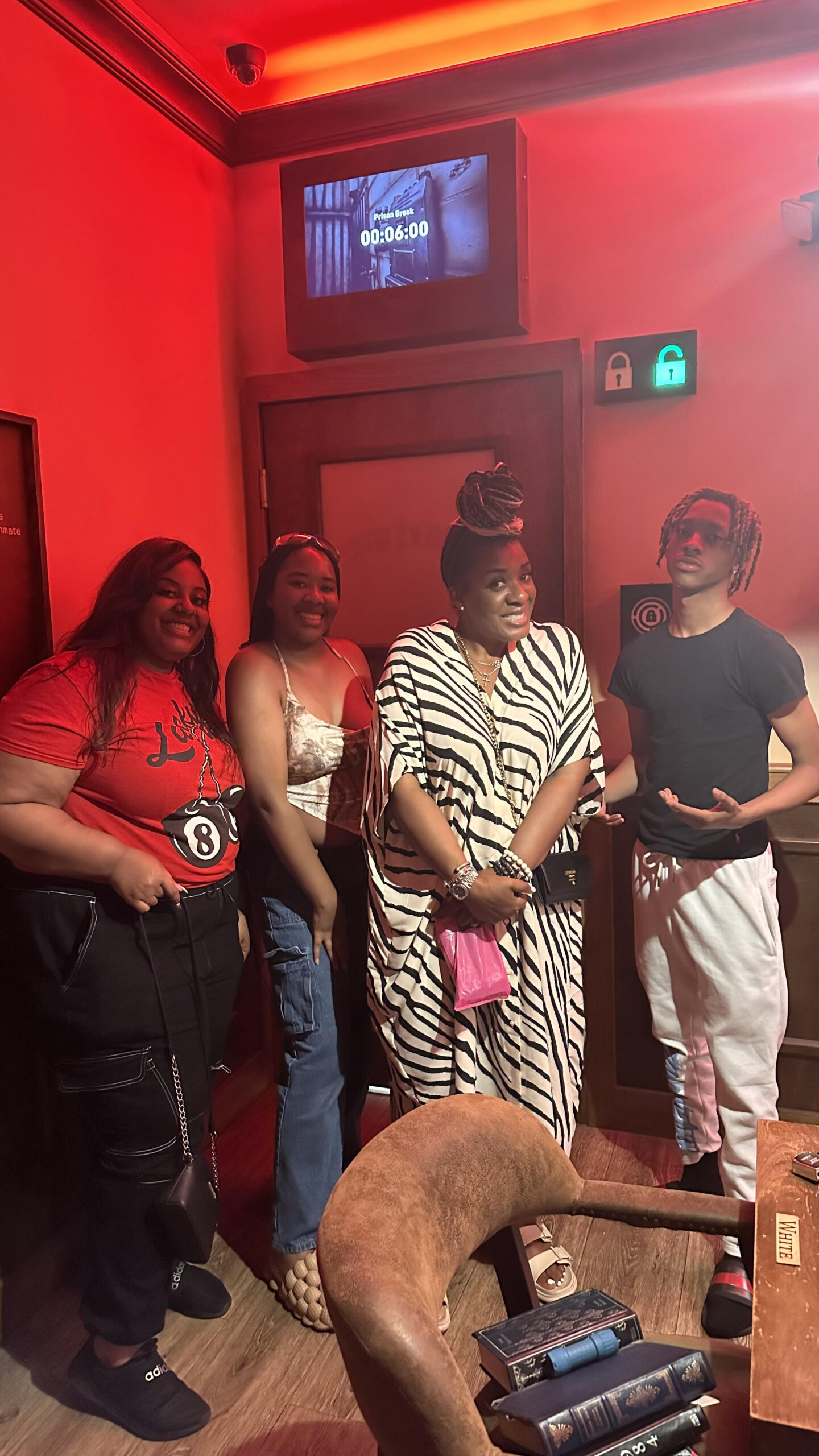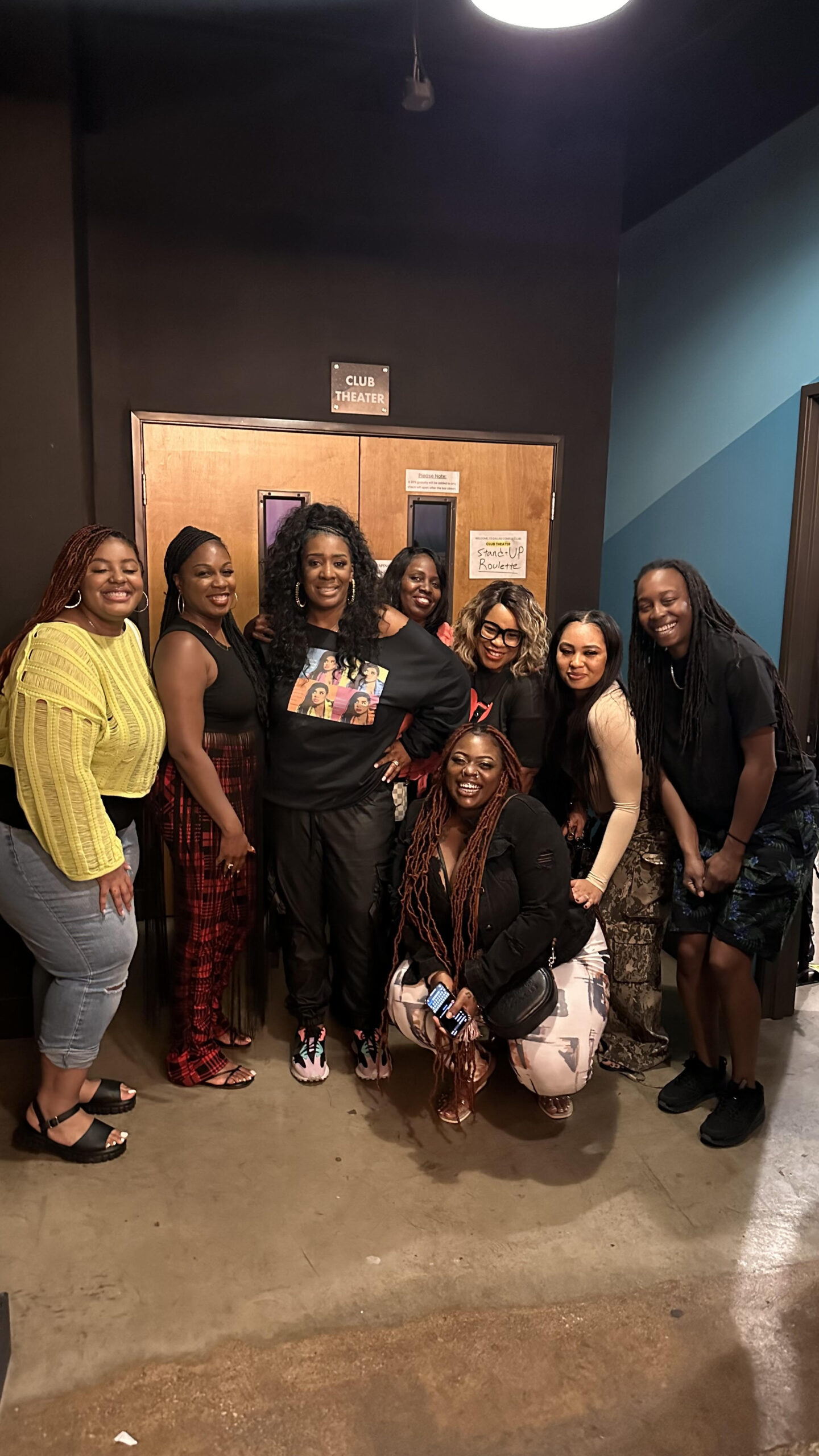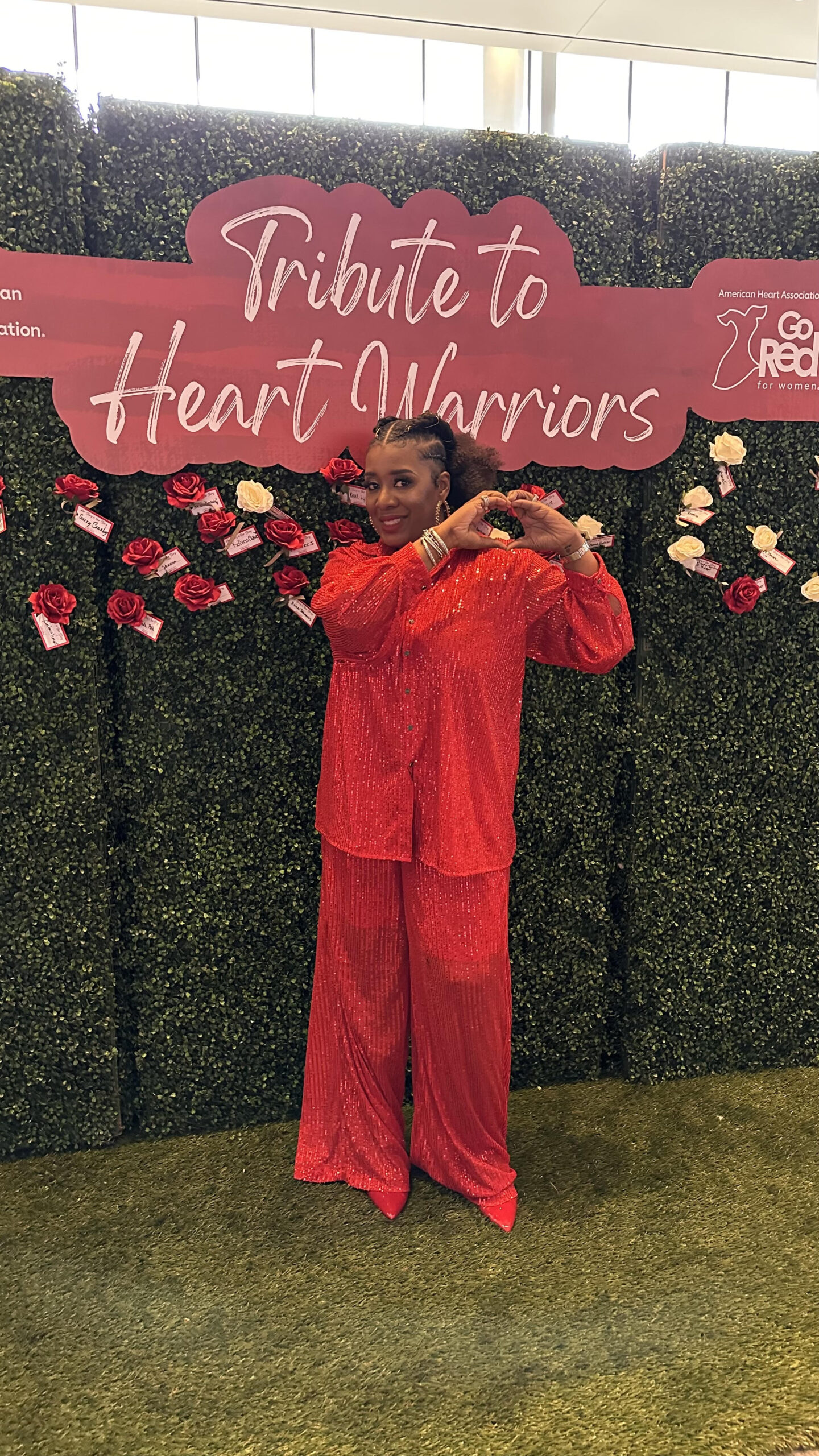
Sudden fatigue can be caused by a number of things including lack of sleep, medication, anemia, heart/pulmonary problems, cold/flu, etc.
When ShantaQuilette Carter-Williams began feeling abnormally fatigued, she thought she was coming down with the latter. At the time, she was experiencing nausea, vomiting, light chest pain and shoulder pain on her right side.
“I remember telling a coworker I think I'm coming down with the flu. I'm going to go ahead and go home. And my husband was aware of me having these issues and asked me several times if I needed to go to the hospital and I was like no. I think I'm going down with the flu. I’ll rest,” Carter-Williams shares.
RELATED: Act “FAST”: Recognize the Signs of a Stroke
Divine intervention
Although Carter-Williams' husband was heading to work, he still managed to do what she describes as “divine intervention” by telling her daughter to take her to the emergency room despite her resistance.

By the time Carter-Williams' daughter came downstairs to take her to the hospital, she was experiencing jaw pain that was shooting down her jaw to her left arm.
When she arrived at the hospital, doctors gave her nitroglycerin and performed an EKG.
“...The doctor kind of looked at me. First, he was in a jovial mood, and then when he came back in, the mood had changed and that's when they let me know that I was having a heart attack,” Carter-Williams recalls.

After spending a few days in the hospital, Carter-Williams was discharged with no medication to prevent another situation.
“When I started having the fluttering in my chest, I was very active, I was small, I was below my BMI, I was exercising. I was doing everything right. I had just lost a significant amount of weight so I felt like I was in tip-top shape for my age and didn't know of any heart issues that I had–that my family had or anything like that so it wasn't really a reason for me to question the medication,” she adds.
However, Carter-Williams, who has a history of being dismissed by doctors, began to feel like something was wrong when she was still experiencing heart problems despite avoiding the things that triggered them.
“I'm like OK I'm not exercising. I'm not elevating my heart like I was before. I'm not doing all these things that you would think were triggering these chest pains but they were still happening and so it was like the information that I was providing to the doctors would kind of come against me,” she says. “Because I work for the IRS–I was a revenue officer– I'm out in the field dealing with taxpayers doing stuff like that. I'm a Black woman so it's like oh you're stressed you need to change your job–all these things– but not ‘Hey let's do some invasive tests to see if there's something else going on.’”
Going back and forth to the emergency room and dealing with dismissive and rude doctors became exhausting and frustrating for Carter-Williams and her family.
“I remember crying one time and he's like ‘Why are you crying?’ and I was like because I feel like you could be doing more,” the mother and wife recalls adding that she felt defeated after constantly being told there was nothing wrong with her.

Months after having a heart attack, Carter-Williams suffered a stroke while at work.
“I can say this is the only morning that I woke up and I didn't have pain and [a] headache. I wake up– I go to the office. Thirty minutes after getting to the office, I'm laughing with my manager you know cracking up– talking about our town hall meeting. I walk over to my desk sit down and I get a headache–a headache just came out of nowhere. Immediately I started feeling dizzy–my vision getting blurry and I remember feeling like I was paralyzed on the side of my body,” the IRS worker turned comedian shares. “My coworker said that she heard some sounds like somebody was struggling to make it out of the cubicle and she said I looked like I was having a stroke. She said my face looked a little bit droopy and I fainted. I don't remember anything from there.”
Carter-Williams went to Baylor University Medical Center where doctors initially diagnosed her with multiple sclerosis and told her she’d also suffered a seizure. After seeing a neurologist and spending around 18-20 hours in the hospital, Carter-Williams, who could not walk or talk, left the hospital in a wheelchair.
The next day the symptoms worsened.
“I was diagnosed with a stroke and then put back into rehabilitation and for the next two years I was in medical care rehabilitation, speech occupational and cognitive and physical therapy,” Carter-Williams says.

RELATED: Life After Stroke: 5 Self-Care Tips
The importance of knowing your family history
After her stroke, Carter-Williams made another shocking discovery. Both her parents had cardiovascular disease (CVD), two first cousins had heart attacks, and another had a stroke at 36.
She believes that if she had this knowledge of her family history beforehand, doctors may have approached things differently.
“Do your patient questionnaire. They ask you those questions for a reason so maybe if I had given that info to the doctor he would have said ‘Hey let's go ahead and put you on some better preventative medication just in case.’” Carter-Williams adds. “Those conversations are important and need to be had, but you also have to hold the people next to you accountable–hold the doctors accountable.
“In the Black culture, we have this thing where ‘it's my business.’ You hear Uncle Charlie passed away but nobody talks about Uncle Charlie having high blood pressure, diabetes–all these things and he's a direct descendant of you. What are the chances that I can pick up those health issues because of Uncle Charlie? I think those conversations are really important.” she adds.

The influencer has also passed this mindsight along to her children, including her daughter who is on blood pressure medication after some persistence from her mom to see a doctor for chronic migraine.
Be the "CEO" of your own body
Carter-Williams' journey has also inspired her to do advocacy work in hopes that others will be the “CEO” of their own bodies.
“I have this thing now where I say I’m the CEO of my body and the doctors are my employees and anytime you're not doing what I think is beneficial for my body, then I have to let you go and find employees who are responsible, accountable and can do the job. After I had my stroke and my heart attack, I fired all my doctors except the neurologist,” the Pink Peppermint Project Founder and CEO shares. “I felt like they had a responsibility to me and they failed me even when I was concerned.”
Her advice for others? Take care of yourself and know the warning signs. “Sometimes we let ourselves fall to the wayside. We make everything our jobs, our family, our husbands, life, traveling–we put all this stuff in the forefront and we don't take care of ourselves,” the wife and mother shares.

When looking back on her journey, Carter-Williams is fortunate for those who helped her get those long-awaited answers like her husband, who demanded that doctors take her seriously, and the emergency room doctor who referred her to a Black cardiologist, which helped her get long-awaited answers.
“I'm grateful God gave me two weeks to get all those warnings and still be alive but some people get two and three days. They feel symptoms and they lay down and go to sleep and they don't wake up. I don't want that to happen to people so I want people to be accountable and make sure they're eating healthy. Of course, it's OK to indulge every now and then but if your doctor says don't indulge, don't indulge,” Carter says.









